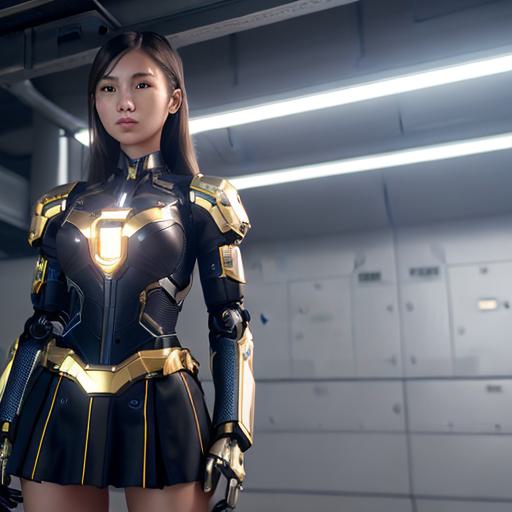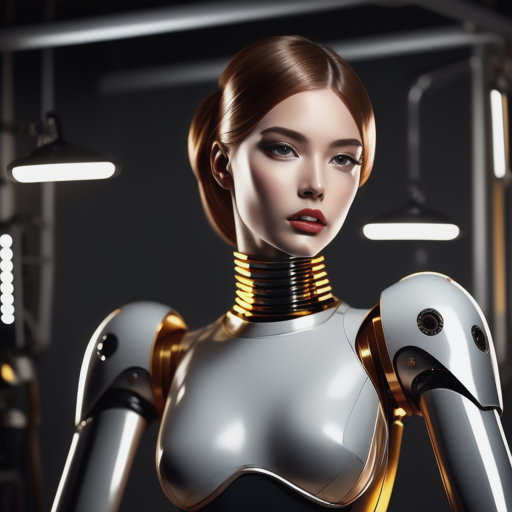Ethical and Legal Considerations Surrounding Robot Prostitution and AI-Generated Images of Women in Entertainment
The concept of robot prostitution or AI sex work has sparked discussions on the potential use of robots or artificial intelligence for sexual services or companionship. However, this emerging field raises numerous ethical, legal, and social questions that need careful consideration.
Technological Feasibility:

From a technological perspective, the development of robots with advanced AI capabilities capable of simulating human-like interactions and performing physical tasks is within reach. While some companies have created sex dolls with limited AI features, fully functional and autonomous sex robots are yet to be realized.
Legal and Regulatory Challenges:
The legal and regulatory landscape surrounding robot prostitution is complex. Prostitution is illegal in many jurisdictions, and using robots for sexual services may fall under existing laws governing obscenity, public decency, or human trafficking. These laws are intended to protect human rights and prevent exploitation, making it difficult to establish a legal framework for robot prostitution.
Ethical Considerations:
Robot prostitution raises ethical concerns regarding consent, objectification, and the impact on human relationships. Consent is a vital aspect of any sexual interaction, and obtaining consent from a robot or AI entity remains unclear. There are worries that the use of sex robots could objectify women or perpetuate harmful attitudes towards sex and relationships.

Social Implications:
The introduction of robot prostitution could have profound social implications. Supporters argue that it could potentially reduce the demand for human trafficking or the exploitation of vulnerable individuals in the sex industry. However, critics express concerns that it may further isolate individuals, negatively impact human relationships, or reinforce harmful power dynamics.
Psychological and Emotional Well-being:
While robots may be capable of simulating physical interactions, they lack the emotional intelligence and empathy found in human relationships. Engaging in sexual interactions with robots instead of humans could potentially affect individuals’ emotional well-being and their ability to form meaningful connections.
It is important to note that the concept of robot prostitution is still largely theoretical, as there are currently no widely available, fully autonomous sex robots. Any development and adoption of such technology would require careful consideration of the legal, ethical, and societal implications to ensure the protection of human rights and well-being.
Moving on to AI-generated images of women for entertainment purposes, these refer to computer-generated images or virtual models created using artificial intelligence algorithms. These algorithms analyze large datasets of existing images of women and generate new images that mimic the visual attributes of real women.

AI-generated images offer versatility and convenience in various entertainment applications, including video games, movies, virtual reality experiences, and advertising. They provide designers with the ability to customize and modify models to meet specific requirements or artistic visions, often in a cost-effective and time-efficient manner compared to traditional methods.
However, ethical concerns arise when considering the objectification and unrealistic portrayal of women through AI-generated images. There is a potential for perpetuating beauty standards that may not be representative of real-world diversity. Creators and developers must be mindful of these issues and strive for responsible and inclusive representation when using AI-generated models.
Additionally, AI-generated images can be manipulated or misused for malicious purposes, such as creating deepfake videos or distributing non-consensual explicit content. These concerns underscore the need for ethical guidelines and regulations surrounding the use of AI-generated content to ensure responsible and respectful practices.
As AI technology advances, the field of AI-generated models is likely to evolve and improve. Ongoing discussions and collaborations among industry professionals, policymakers, and ethicists will play a pivotal role in shaping the responsible use of AI-generated images, promoting fairness, diversity, and a positive impact on the entertainment and media industry.

Leave a Reply